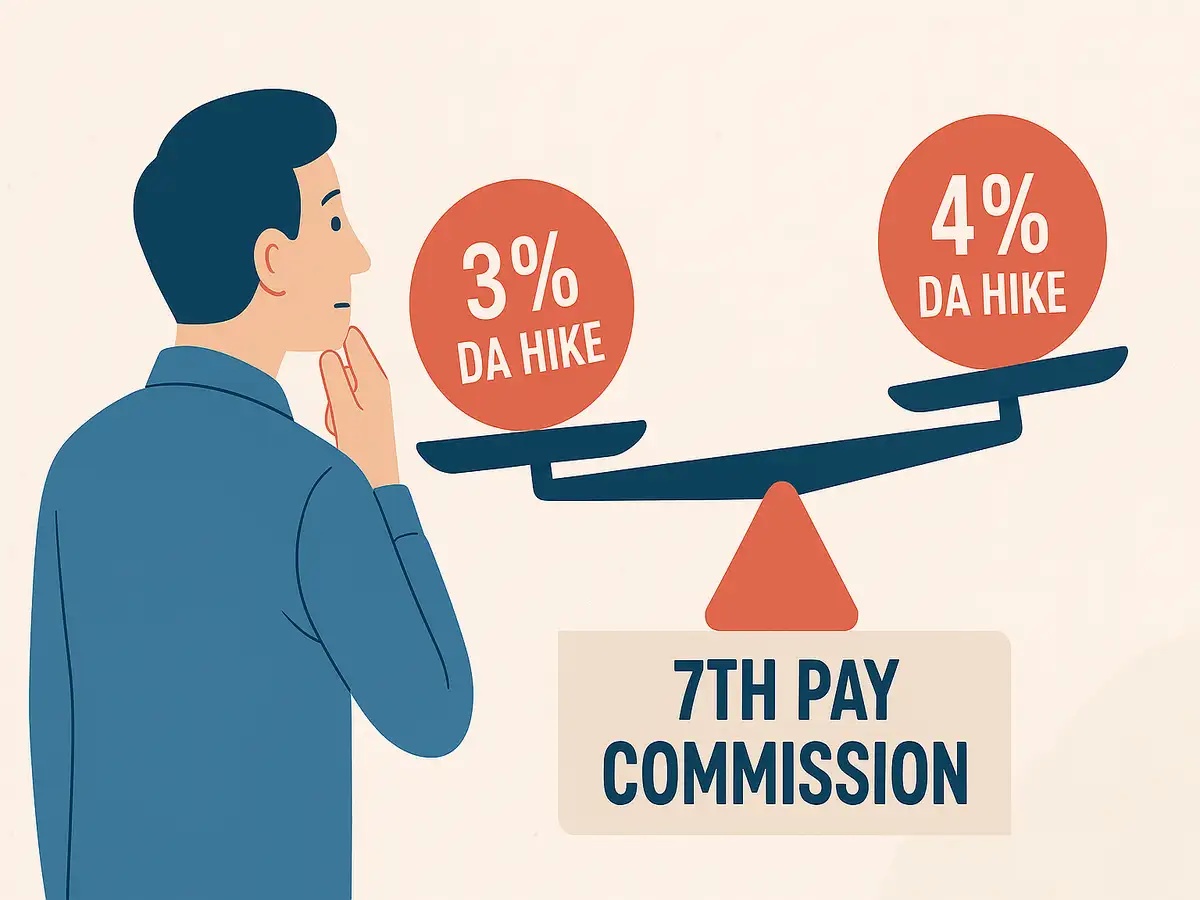
Anticipation Builds for DA and DR Hike Ahead of 7th Pay Commission Closure
Approximately 1 crore central government employees and pensioners are eagerly awaiting a significant salary boost as the government prepares to announce its next dearness allowance (DA) and dearness relief (DR) hike. These adjustments, typically announced twice annually in July and December, are set to be the final increases for 33 lakh employees and 66 lakh pensioners under the 7th Pay Commission, which concludes its tenure in December 2024. The anticipated hike, projected to raise DA from its current 55% to around 58%, has sparked widespread interest among beneficiaries who rely on these adjustments to maintain their purchasing power amid inflationary pressures.
Complex Calculations Behind the DA Hike
The DA and DR adjustments are determined using the Consumer Price Index for Industrial Workers (CPI-IW), which tracks inflation across essential goods and services. The calculation involves a specific factor of 2.88, applied to the indexed CPI-IW data to arrive at the final percentage. Analysts suggest that the 3% increase from the current 55% to 58% will have a tangible impact on monthly incomes, particularly for lower-wage employees. For instance, a base salary of Rs 25,000 would see DA rise from Rs 13,750 to approximately Rs 14,500, offering immediate financial relief to millions.
8th Pay Commission Delay and Arrears Concerns
While the 7th Pay Commission’s final hike is imminent, the delayed implementation of the 8th Pay Commission has raised concerns about arrears for employees. The government has not yet finalized the terms of reference (TOR) or appointed a chairman for the new commission, which is expected to take effect in January 2026. Experts estimate that the process could take an additional 1.5 to 2 years, leaving employees without a comprehensive pay review for an extended period. This delay may result in temporary financial strain, as the 8th Pay Commission’s proposed adjustments could reset DA to zero, creating a gap in benefits for the interim.
Historical Context and Future Implications
The 7th Pay Commission’s DA of 55% marks a significant reduction from the 125% rate under the 6th Pay Commission in 2015, which had previously provided substantial relief to employees. However, the current hike is projected to be the lowest increase in the past four pay commissions, raising questions about the sustainability of the government’s approach to salary adjustments. Meanwhile, the 8th Pay Commission’s eventual implementation could bring about a more comprehensive review of pay scales, benefits, and allowances, potentially addressing long-standing grievances among employees. The timing of these adjustments will be critical in balancing fiscal responsibility with the need to maintain public sector wages.
Key Takeaways for Central Government Employees
The upcoming DA and DR hike represents a crucial financial update for central government employees and pensioners, particularly as the 7th Pay Commission’s tenure draws to a close. While the 3% increase offers immediate relief, the delayed 8th Pay Commission process highlights the need for a more structured approach to salary adjustments. Employees are advised to monitor official announcements for the exact percentage and implementation date, as these changes will directly impact their monthly incomes and long-term financial planning.




